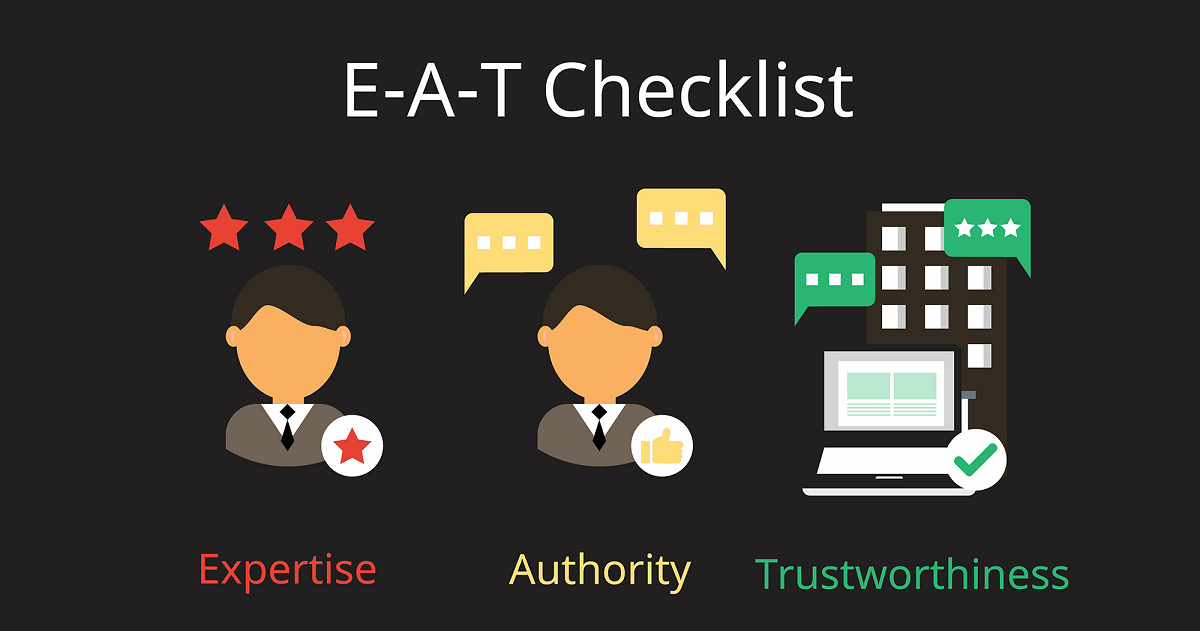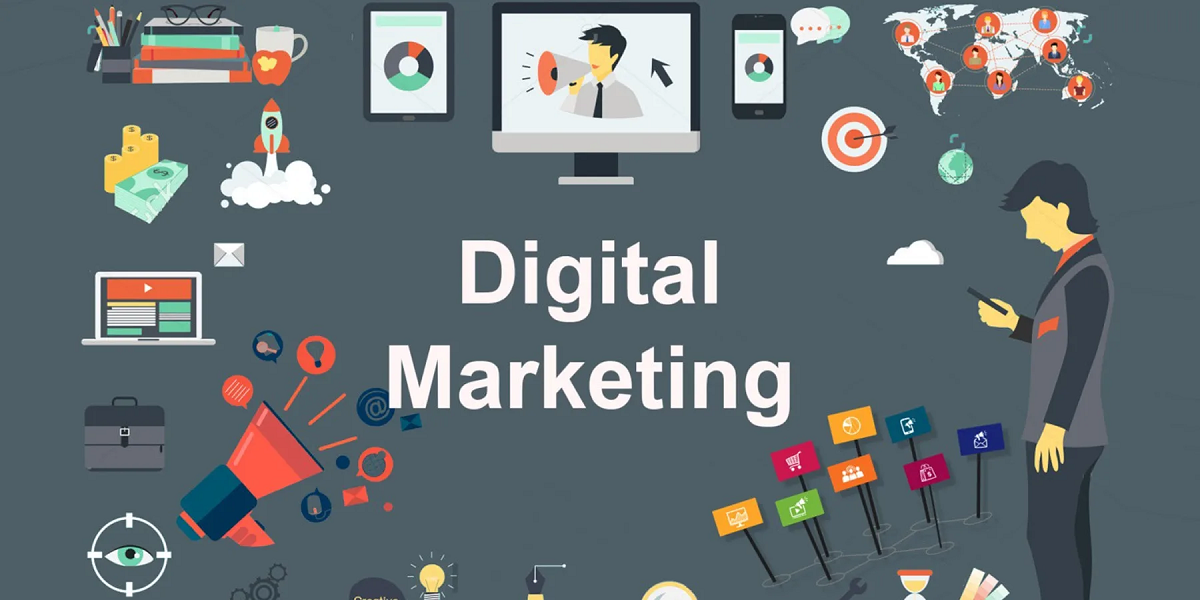BLOG
Personalization in Digital Marketing: Tailoring Experiences

In the ever-evolving landscape of digital marketing, personalization stands as a beacon of tailored experiences in a sea of generic content. It's the art of transforming mere interactions into meaningful engagements, where each touchpoint resonates uniquely with the individual consumer.
Through sophisticated algorithms, data analytics, and an acute understanding of consumer behavior, marketers today have the power to craft bespoke journeys that speak directly to the hearts and minds of their audience. Personalization isn't merely about addressing customers by their first name; it's about anticipating their needs, preferences, and desires before they even articulate them themselves.
In this blog, we delve into the intricacies of personalization in digital marketing, exploring its significance, challenges, and the transformative impact it holds for brands aiming to forge deeper connections with their clientele in an increasingly competitive digital sphere.
The Evolution of Personalization in Marketing
Personalization in marketing has evolved significantly, moving from broad demographic segmentation to highly individualized strategies. Advancements in technology have enabled marketers to gather and analyze extensive consumer data, leading to a deeper understanding of preferences and behaviors.
Today, personalization goes beyond addressing customers by name, encompassing tailored recommendations, content, and experiences. Marketers continue to refine their efforts with cutting-edge technologies and data-driven insights, aiming to deliver hyper-personalized experiences at scale.
Understanding the Importance of Tailored Experiences
In today's digital landscape, where consumers are bombarded with content and ads, the significance of tailored experiences is paramount. These experiences delve deeper than mere surface-level customization, addressing the unique needs, preferences, and aspirations of each customer.
Personalized interactions foster stronger emotional connections, nurturing loyalty and advocacy. Studies reveal that tailored experiences drive increased engagement, conversions, and revenue. In a world where authenticity and relevance are prized, brands prioritizing personalization distinguish themselves, earning enduring trust and loyalty for sustained success.
Leveraging Data: The Backbone of Personalization
At the heart of effective personalization lies data—the raw material that fuels insights and drives targeted interactions. Leveraging data allows marketers to move beyond assumptions and guesswork, instead making informed decisions based on real-time information about consumer behaviors, preferences, and interests.
By harnessing data from various sources such as website interactions, social media engagement, and purchase history, marketers can create comprehensive customer profiles that serve as the foundation for personalized campaigns.
Additionally, advancements in data analytics and machine learning empower marketers to uncover hidden patterns and trends within datasets, enabling them to anticipate consumer needs and deliver highly relevant content at the right moment in the customer journey.
Segmentation Strategies for Effective Personalization
Segmentation strategies are vital for effective personalization in digital marketing, allowing marketers to tailor messaging and offerings to specific audience segments. By dividing the target audience based on shared characteristics or behaviors, marketers can enhance relevance and optimize resources.
- Improved Targeting: By understanding the unique characteristics and preferences of different audience segments, marketers can create more targeted and relevant campaigns.
- Increased Engagement: Personalized messages that speak directly to the interests and needs of each segment are more likely to capture attention and foster engagement.
- Higher Conversion Rates: When consumers feel that a brand understands their specific needs, they are more inclined to take action, leading to increased conversion rates.
- Enhanced Customer Satisfaction: Tailoring experiences to match individual preferences enhances overall satisfaction, leading to stronger relationships with customers.
- Better ROI: By delivering the right message to the right audience at the right time, segmentation strategies ultimately lead to a higher return on investment for marketing efforts.
Segmentation strategies are essential tools for marketers seeking effective personalization. By delivering tailored messages, marketers can optimize engagement, conversion rates, and customer satisfaction, ultimately driving business success.
Personalization Across Multiple Touchpoints
In today's omnichannel landscape, consumers interact with brands across a multitude of touchpoints, from websites and social media to email and mobile apps. Personalization across these various touchpoints is essential for maintaining consistency and relevance throughout the customer journey.
By integrating data and insights across channels, marketers can create seamless experiences that transition seamlessly from one touchpoint to another, providing a cohesive and personalized journey for the consumer.
Whether it's tailoring website content based on browsing history, sending personalized recommendations via email, or delivering targeted ads on social media, effective omnichannel personalization ensures that each interaction feels connected and meaningful, ultimately driving engagement and loyalty.
Dynamic Content: Engaging Audiences in Real Time
Dynamic content is a game-changer in digital marketing, allowing brands to connect with their audience in real time with contextually relevant experiences. Through the use of advanced algorithms and data analytics, dynamic content adapts and evolves based on the user's behavior, preferences, and even their location, delivering personalized experiences that resonate on a deeper level.
- Real-time relevance: Dynamic content ensures that every interaction is timely and tailored to the user's immediate needs and interests.
- Enhanced engagement: By delivering content that is personalized and contextually relevant, dynamic content captures the audience's attention and encourages interaction.
- Improved conversion rates: Personalized content has been shown to drive higher conversion rates, as it speaks directly to the user's preferences and motivations.
- Optimal performance: Dynamic content allows marketers to continuously optimize their campaigns based on real-time data and insights, ensuring maximum effectiveness.
- Seamless integration: Dynamic content seamlessly integrates across various channels and touchpoints, providing a cohesive and personalized experience throughout the customer journey.
Dynamic content revolutionizes digital marketing by enabling brands to engage their audience in real time with personalized, contextually relevant experiences. By harnessing the power of dynamic content, marketers can drive engagement, boost conversion rates, and foster deeper connections with their audience.
Overcoming Challenges in Personalization Implementation
While personalization offers numerous benefits, implementing a successful personalization strategy is not without its challenges. One of the primary hurdles is the sheer volume and complexity of data that marketers must navigate to derive meaningful insights.
From collecting and integrating data from disparate sources to ensuring data accuracy and compliance with privacy regulations, managing data effectively requires careful planning and execution. Additionally, personalization efforts can be hindered by technology limitations, organizational silos, and resource constraints. Marketers must also contend with the ever-present risk of over-personalization, where too much customization can come across as intrusive or creepy to consumers.
Overcoming these challenges requires a strategic approach, a commitment to data-driven decision-making, and a willingness to continuously adapt and refine personalization efforts based on feedback and insights.
The Role of AI and Machine Learning in Personalization
Artificial intelligence (AI) and machine learning (ML) have emerged as powerful tools in the realm of personalization, enabling marketers to analyze vast amounts of data and derive actionable insights at scale. AI-powered algorithms can process complex datasets, uncover patterns and trends, and predict future behaviors with a level of accuracy and efficiency that far surpasses human capabilities.
Machine learning algorithms can also continuously learn and adapt based on new data, allowing marketers to refine their personalization strategies over time. From personalized product recommendations to automated email campaigns, AI and ML are transforming the way marketers engage with consumers, delivering more relevant, timely, and personalized experiences across every touchpoint.
Measuring Success: Metrics for Personalized Campaigns
Measuring the success of personalized campaigns is crucial for optimizing strategies and maximizing ROI. By analyzing key metrics, marketers can gain valuable insights into the effectiveness of their efforts and make informed decisions to drive better results. Here's a look at some essential metrics for measuring success in personalized campaigns:
- Click-Through Rate (CTR): The percentage of recipients who click on a link or call-to-action (CTA) in the personalized content, indicating engagement and interest.
- Conversion Rate: The percentage of users who complete a desired action, such as making a purchase or filling out a form, after interacting with personalized content.
- Customer Lifetime Value (CLV): The total value a customer contributes to a business over their entire relationship, providing insight into the long-term impact of personalized campaigns.
- Return on Investment (ROI): The ratio of revenue generated to the cost of implementing personalized campaigns, demonstrating the profitability of personalized marketing efforts.
- Engagement Rate: The level of interaction and involvement from users with personalized content, including likes, shares, comments, and time spent on page.
Measuring success in personalized campaigns requires a comprehensive approach that considers both quantitative and qualitative metrics. By tracking these key indicators, marketers can assess the impact of personalized strategies and continuously refine their approach to deliver meaningful experiences that drive results.
Ethical Considerations in Personalized Marketing
As personalization becomes increasingly sophisticated, marketers must grapple with ethical considerations surrounding data privacy, transparency, and consumer consent. Collecting and utilizing vast amounts of consumer data raises concerns about privacy infringement and the potential for misuse or abuse of personal information.
Marketers must prioritize transparency and consent, clearly communicating how data is collected, stored, and used, and giving consumers the option to opt out of personalized experiences if they choose. Additionally, marketers must be mindful of the potential for bias in algorithms and data-driven decision-making processes, ensuring that personalization efforts are fair, inclusive, and respectful of diverse perspectives and backgrounds.
By adopting ethical guidelines and best practices, marketers can build trust and credibility with consumers, fostering long-term relationships built on mutual respect and transparency.
Personalization in digital marketing has become a cornerstone of success, evolving from broad segmentation to highly individualized experiences tailored to each consumer's unique preferences and behaviors. As technology continues to advance, the possibilities for personalized marketing are virtually limitless, offering brands the opportunity to forge deeper connections with their audience across multiple touchpoints.
However, implementing effective personalization strategies comes with its challenges, from managing vast amounts of data to navigating ethical considerations surrounding consumer privacy and consent. Yet, the rewards of personalized marketing are undeniable, driving higher engagement, conversion rates, and ultimately, long-term brand loyalty. At Social Cali, we specialize in crafting personalized digital marketing strategies tailored to your business needs, helping you stand out from the competition and dominate your industry.
Contact us today at 1-415-888-9561 or sales@socialcali.com to learn how we can elevate your brand with our proven San Diego Digital Marketing Strategies. Don't just take our word for it—join countless satisfied clients who have seen firsthand the transformative power of personalized marketing.











